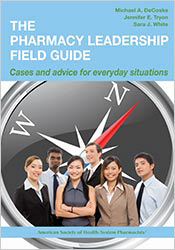Download this document in PDF format
ASHP (the American Society of Health-System Pharmacists) respectfully submits the following statement for the record to the House Ways and Means Committee’s Subcommittee on Health hearing on examining “Legislation to Improve and Sustain the Medicare Program.”
ASHP represents pharmacists who serve as patient care providers in acute and ambulatory settings. The organization’s more than 43,000 members include pharmacists, student pharmacists, and pharmacy technicians. For over 70 years, ASHP has been at the forefront of efforts to improve medication use and enhance patient safety.
Medications have become the first line of therapy to treat patients with chronic diseases and acute complex diseases such as cancer and heart failure. Breakthroughs in new medications have led to more Americans living longer, healthier lives. Along with development and approval of new medications, emerge new challenges. Within the Medicare community alone, nearly 70 percent of Medicare beneficiaries have one or more chronic conditions1, and many of these beneficiaries take multiple medications. Lack of proper medication oversight and management can result in suboptimal therapeutic outcomes and in some cases, patient harm. For example, too many patients are unnecessarily readmitted to the hospital or visit the emergency department due to medication-related issues. The Institute of Medicine estimates that 1.5 million preventable adverse drug events (ADEs) occur annually in the United States, resulting in an estimated 7,000 deaths.2 Medication-related morbidity is estimated to cost $177 billion annually – with Medicare carrying much of this cost.3
An additional risk associated with the medication-use process is underuse of medications. Underuse may be a result of patient non-adherence, or the failure of providers to follow evidence-based treatment guidelines. The New England Healthcare Institute has estimated the cost of medication-related adverse events and non-adherence to total $290 billion annually.4
As the medication-use experts, pharmacists have the background and training necessary to ensure that patients make the best use of their medications, and are often the most accessible healthcare professional. Further, pharmacists today receive clinically-based doctor of pharmacy degrees, and many also complete post-graduate residencies and become board-certified in a variety of specialties. Pharmacists in hospitals and ambulatory clinics work with physicians, nurses, and other providers on inter-professional teams to manage patients’ medications and ensure appropriate care transitions.
Care transitions are a significant cost driver to the Medicare program. According to the Centers for Medicare & Medicaid Services, hospital readmissions among Medicare beneficiaries result in annual costs to the Medicare program of $26 billion. Upon discharge from the hospital, many patients are in need of education about the newly prescribed medications they must take, which often involves follow-up to ensure that patients take medications. Without this education, many patients are re-admitted to the hospital, often within 30 days of being discharged. Many hospitals have now developed strategies to reduce readmission numbers by using pharmacists to provide education on how to take new medications, answer patient questions or concerns, or provide instruction on whether medications patients were taking prior to hospitalization can be discontinued. Pharmacists often follow-up with patients after discharge to answer questions and ensure that their therapy is going as planned.
A recent study in the AJHP (American Journal of Health-System Pharmacy5) noted that patients assigned to receive pharmacist interventions in conjunction with physician hospital follow-up visits have a statistically significant lower rate of readmission within 30 days (9.2%) than those who did not receive pharmacist interventions (19.4%). Another study examined the development of a collaborative transitions–of-care program for heart failure patients6 in a 390-bed community hospital. Pharmacists performed daily medication profile reviews for high-risk heart failure patients, including appropriate discharge counseling. The result was a reduction in 30-day heart failure readmissions and a cost savings of roughly $5,652 per patient.
Inclusion of pharmacists as members of the healthcare team has been demonstrated to decrease drug related morbidity, mortality, and costs.7 For every dollar invested in clinical pharmacy services in all types of practice settings (hospital, clinics, government, etc.), an average savings of $4.00 is realized to the health system.8 Many examples of the impact of pharmacists being included in the healthcare team have been discussed in the literature. The 2011 Report to the U.S. Surgeon General provides a comprehensive review of the types of services and the impact of advanced pharmacy services that are provided by pharmacists throughout the United States.9 ASHP believes the ideal complex medical management model includes the services of appropriately trained pharmacists across the continuum of care and integrated with the entire inter-professional team.
In outpatient clinics, accountable care organizations, medical homes, and physician group practices, pharmacists are working collaboratively with other healthcare professionals to help patients manage chronic diseases such as diabetes, high blood pressure, and heart failure. The value that pharmacists provide as medication-use experts has become more evident as the inter-professional team members increasingly rely on the expertise of pharmacists on medication-related issues. In addition to medication and chronic disease management, pharmacists can administer immunizations and perform preventative health-screening services such as blood pressure, glucose, cholesterol, and bone-density tests.
As the number of Americans reaching retirement continues to grow, the projected enrollment into the Medicare program will correspondingly increase. At the same time, the number of uninsured Americans continues to decrease. The result is tremendous pressure being placed on a primary care infrastructure that cannot meet the burgeoning demand of care needs. This has left many Americans, including Medicare beneficiaries, with few options for obtaining basic healthcare services. Legislation before your committee, H.R. 592, the “Pharmacy and Medically Underserved Areas Enhancement Act,” would address that gap in care by enabling pharmacists to better apply their full expertise and training to Medicare beneficiaries in underserved areas, pursuant to their state scope of practice. As a member of the Patient Access to Pharmacists’ Care Coalition (PAPCC), ASHP recommends that the committee leverage the expertise of pharmacists in managing complex patient cases by including the provisions of H.R. 592 – a bill with 287 co-sponsors in the House. S. 314, the companion bill in the Senate, has 45 cosponsors.
ASHP is a proud supporter of this legislation, and we believe it is a critical component of emerging care models that make best use of the expertise of each member of the care team.
Conclusion
ASHP greatly appreciates the opportunity to provide a statement for the record on this important topic. We remain supportive of the Medicare program and are pleased that the committee has begun the process of exploring ways to improve the program and enhance patient care. Additionally, ASHP members are at the forefront of new and innovative care-delivery models that improve patient outcomes and avoid additional costs to the Medicare program. We believe that including pharmacists as non-physician providers in the Medicare program will help provide needed access to care for our nation’s medically underserved patients. ASHP is committed to working with the Subcommittee on Health to advance healthcare delivery that is team-based, and patient-centered, and that reduces unnecessary costs to Medicare.


